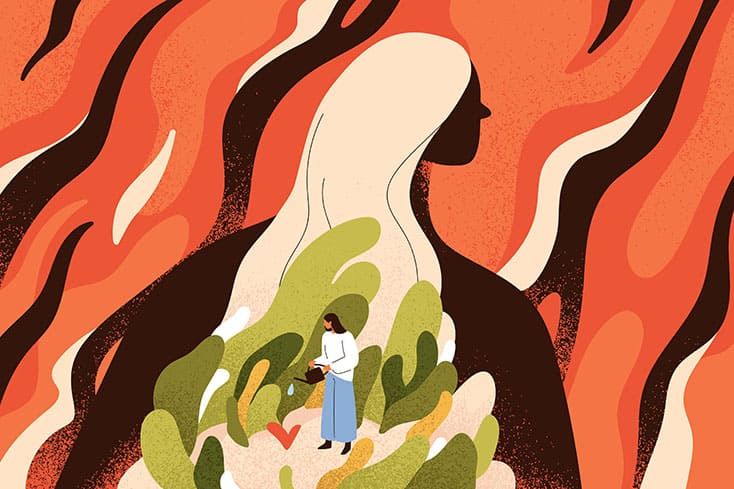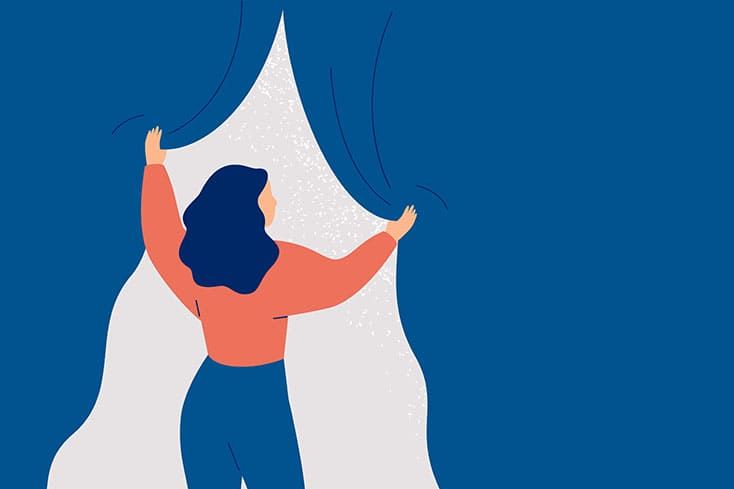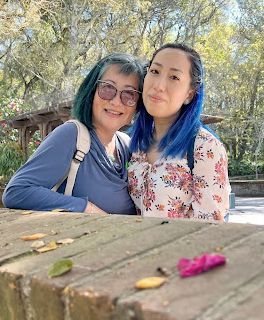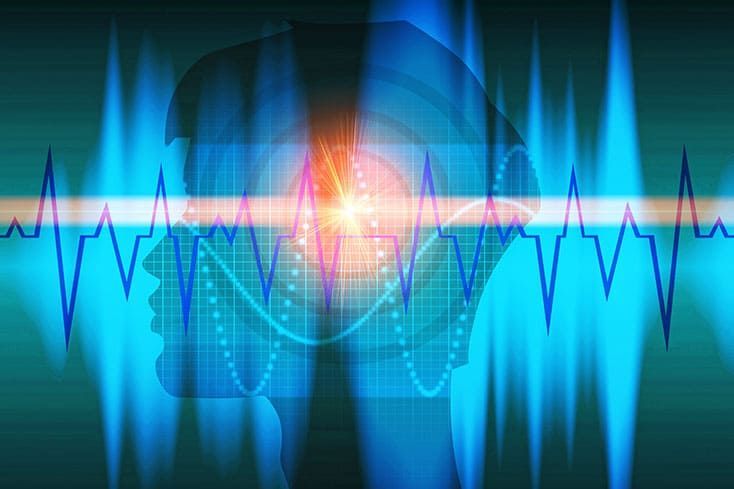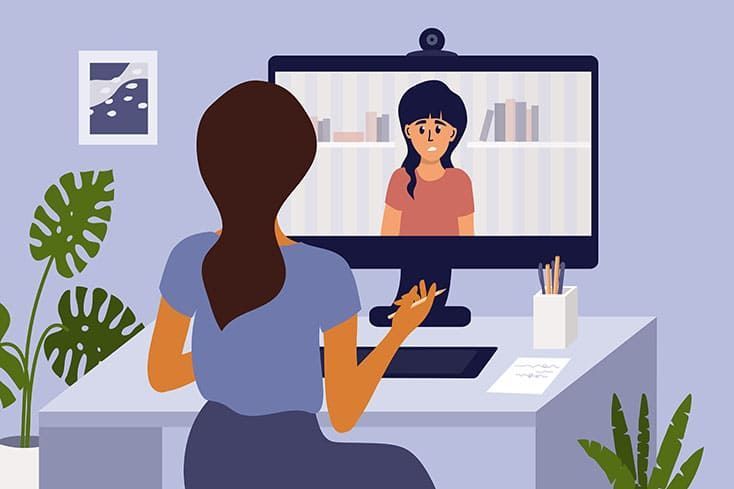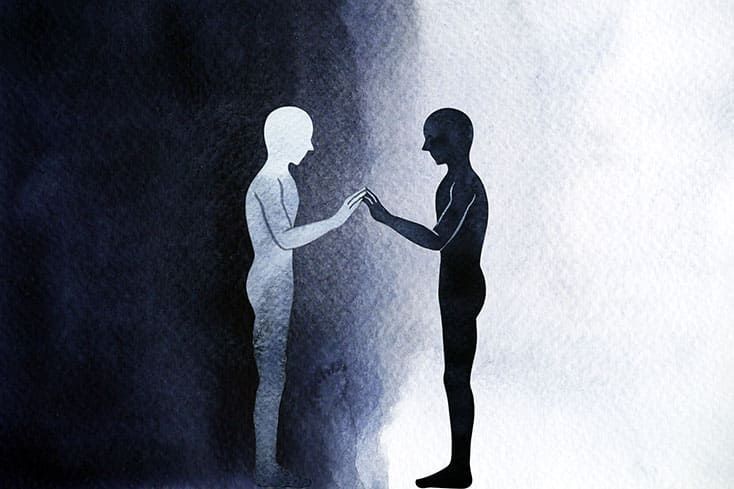撰寫文章以提高對雙相情感障礙的認識 | Writing to Spread Awareness about Bipolar Disorder
MHACC 雙語部落格 Bilingue Blog
Scroll down for the English Version ⬇️
作者:Julie Whitehead
在這裡閱讀原文: https://www.nami.org/advocate/writing-to-spread-awareness-about-bipolar-disorder/
2023年06月02日
2006年,我經歷了一系列的精神疾病的發作,最終我決定逃離到家人無法找到我的地方,結束自己的生命。幸運的是,我被送往路易斯安那州的一家住院治療中心接受了三天的住院治療,然後被送回密西西比州,在靠近州首府郊區的家中度過了這一階段。在狂躁期被評估後,我終於在三十多歲時被正確診斷為雙相情感障礙。
這個診斷讓我震驚;我從未想過自己可能患有嚴重的精神疾病。以前的抑鬱症發作似乎是在我有理由感到抑鬱的時候發生的。我把我的輕躁期視為我的正常個性。我花了四個小時的時間在深夜開車到新奧爾良,並且連續醒了三十六個小時,才讓人們了解到我情緒的錯綜複雜。
但即使在我尚未完全接受自己患有雙相情感障礙之前,我就知道我可以以某種方式讓這個診斷帶來益處。我是一名作家,已經寫作了很長時間。我覺得我寫得越多,就越能教育那些需要了解這個診斷的人。雖然這確實是一個嚴重的問題,但這並不意味著世界的終結。
我查閱了我的診斷資料,建立了一個關於雙相情感障礙的資源庫,從生活經驗的回憶錄到充滿統計數據和科學發現的書籍,這些書多到甚至可以用來擋門。最終,我在2014年開始寫博客,討論我與這個疾病的日常生活。
分享生活經驗的故事
2018年,我發現我的一位新聞導師正與一位調查記者合作,成立一種新的新聞編輯部,專注於對密西西比州人民有意義的調查報道。我迫不及待地聯繫了創始人,並主動提出撰寫有關精神健康、精神健康倡導和精神健康教育的故事。
密西西比調查報道中心(MCIR)於2019年底發表了我的第一篇文章,這些文章是有關精神疾病患者的個人檔案,還有我自己精神健康之旅的觀點專欄。不久之後,我也開始為全國性的博客BPHope撰稿,該博客由BP雜誌贊助,這是唯一一本專門探討雙相情感障礙問題的雜誌。
為BPHope,我寫下了自己的生活經驗。但為MCIR,我採訪了真實的人,談論他們的真實經歷,包括焦慮、抑鬱、雙相情感障礙、精神分裂症等等。我寫的第一個故事是關於一個家庭,他們的兒子因可能是雙相情感障礙發作而失踪。隨後的其他故事探討了藥物高成本、治療費用難以負擔以及缺乏專業人士來治療精神疾病等問題。
意識到我有多幸運
我知道雙相情感障礙在我自己的生活中造成的破壞,但通過與這麼多人談論他們的經歷,我發現我非常幸運。我有資源:良好的治療、良好的諮詢服務和良好的家庭支持。我遇到的許多人都沒有這些選擇,或者只有少數選擇。
我對藥物成本問題很熟悉。2015年,我丈夫的公司更改了健康保險計劃,新的計劃不會支付我其中一種藥物的費用,這導致我的治療嚴重受限。我的精神科醫生更換了我的藥物,試圖找到一個有效的組合,但沒有成功。六個月後,在我原來的藥物治療穩定多年後,我因自殺念頭被送醫。我在一篇個人專欄中寫到了這一事件,並附上了我關於藥劑師、患者和醫生如何共同努力,滿足有效治療需求的故事。
但在2021年,一個問題開始引起我的注意——患有精神健康問題的人被關押在監獄中而非治療設施中的困境。有些人在經歷症狀期間犯下暴力罪行後仍被關押在監獄中。其他人在等待擁擠的精神病院安置期間被關押在監獄中。但所有我與之交談的執法人員都表達了相同的看法——監獄不是處理精神疾病的人的地方。
我感同身受。我也曾在我最嚴重的精神崩潰期間被警察作為失踪人口帶走。我有健康保險並被送往醫院治療我的病——但我看到情況很容易走向另一個方向。
我撰寫了一篇關於一名被控謀殺的男子的故事,他在被裁定無法受審後被關押在縣監獄中五年未經審判。我的故事在全州各地報紙上刊登後,該男子最終被轉移至州立精神病院的監護之下。
我寫的另一篇文章——一名市警察據報在臉書帖子中對一名失踪近一年的精神病患者使用辱罵語言的故事——導致該警察因其行為受到譴責。同一案件中的另一個線索導致對該地區前縣警長的調查,該警長涉嫌監管範圍內對精神病患者的虐待和不當對待。
現在我不僅為自己寫作,還為那些無法講述自己故事的人寫作。我坦率而公開地討論這些問題。必須有人這樣做,而我接受了這個挑戰。
Julie Whitehead在密西西比州生活和寫作。她是密西西比州調查報道中心的記者,負責報道有關精神健康、精神健康倡導和精神健康教育的主題。自2014年以來,她一直在Day by Day撰寫博客。
Written By: Julie Whitehead
Read original article here: https://www.nami.org/advocate/writing-to-spread-awareness-about-bipolar-disorder/
June 2, 2023
In 2006, I experienced a series of psychotic episodes, ending with my decision to run away from home, where my family would never find me, and end my life. Thankfully, I was committed to inpatient care in Louisiana for three days and brought back home to Mississippi to ride out the rest of the episode closer to my home in a suburb of the state capital. After being evaluated in a manic phase, I was finally correctly diagnosed with bipolar disorder in my mid-thirties.
The diagnosis shocked me; I had never even considered the thought that I might have severe mental illness. My previous depressions had come when I seemed to have something to be depressed about. My bouts of hypomania were something I considered to be my normal personality. It took an episode of me driving four hours in the dead of night to New Orleans, La. and being awake for over thirty-six hours straight for anyone to put together the intricacies of my moods.
But even before I came to really accept that I had bipolar disorder, I knew that I could somehow make something good come out of my diagnosis. I am a writer and have been writing for a long time. I felt that the more I wrote about bipolar disorder, the more I could educate people who needed to know that this diagnosis, while certainly serious, does not mean the end of the world.
I read up on my diagnosis, building a library of resources about bipolar disorder ranging from memoirs of lived experience to books so dense with statistics and scientific discoveries that you could use them as doorstops. I eventually started blogging about my disorder in 2014, discussing my day-to-day life with the diagnosis.
Sharing Stories of Lived Experience
In 2018, I found out that a journalism mentor of mine was joining forces with an investigative reporter to form a new kind of newsroom, focused specifically on investigations that would matter to the people of Mississippi. I eagerly contacted the founder and offered to write stories related to mental health, mental health advocacy and mental health education.
Mississippi Center for Investigative Reporting (MCIR) published my first stories in late 2019, which were profiles of people who have mental illness and a perspective column on my own mental health journey. Shortly thereafter, I also started writing for BPHope, a nationwide blog sponsored by BP Magazine, the only magazine devoted to the issues surrounding bipolar disorder.
For BPHope, I wrote of my own lived experience. But for MCIR, I interviewed real people about their real experiences with anxiety, depression, bipolar disorder, schizophrenia and more. One of my first stories was about a family whose son had disappeared, likely from a bipolar episode. Other stories followed on issues like high costs for medication, difficulty affording treatment and the lack of professionals available to treat mental illness.
Realizing How Lucky I Am
I knew the havoc bipolar disorder had wreaked in my own life, but through talking to so many people about their experiences, I found I had been extremely fortunate. I had resources: good medication, good treatment, good counseling and good family support. Many people I met had none or few of these options to aid in treating their disorders.
Issues about the cost of medications, however, I was familiar with. My own treatment had been severely curtailed when my husband’s company changed its health insurance plan in 2015, and the new plan would not pay for one of my medications. My psychiatrist changed around my medications, trying to find a combination that would work but was unsuccessful. Six months later, I was admitted for suicidal thinking after being stable for many years on my old medication. I wrote about this episode in a personal column that accompanied my story on how pharmacists, patients and physicians worked together to be able to cover the needs for effective treatment.
But in 2021, one issue began grabbing my attention — the plight of people with mental health conditions who were housed in jails rather than in treatment facilities. Some stayed in jails after committing violent crimes while experiencing symptoms of their disorders. Others stayed in jail awaiting placement in crowded psychiatric facilities. But all the law enforcement personnel I spoke with echoed the same sentiments — jail was not the place for people struggling with mental illness.
I felt empathy. I, too, had been picked up by the police as a missing person when I was suffering my worst psychotic break. I had health insurance and was placed in a hospital to treat my illness — but I could see how easily the situation could have gone another way.
I worked on one story about a man accused of murder who was held in a county jail for five years without trial after being ruled incompetent to stand trial. After my story ran in newspapers across the state, the man was finally transferred to custody of the state psychiatric hospital.
Another piece I wrote — the story of a city police officer who was reported to have used abusive language in a Facebook post about a man with mental illness who had been missing for almost a year — resulted in the officer being reprimanded for her actions. Another tip in the same case led to an investigation of accusations of the former county sheriff in that area overseeing abuse and mistreatment of prisoners with mental illness under his jurisdiction.
Now I write not only for myself but for those who cannot tell their own stories. I write honestly and openly about such issues. Someone has to do it, and I accept the challenge.
Julie Whitehead lives and writes in Mississippi. A reporter for Mississippi Center or Investigative Reporting, Julie covers topics on mental health, mental health advocacy and mental health education. She has also blogged at Day by Day since 2014.
Sign up for our Newsletter
訂閱每月簡訊獲得最新資訊






